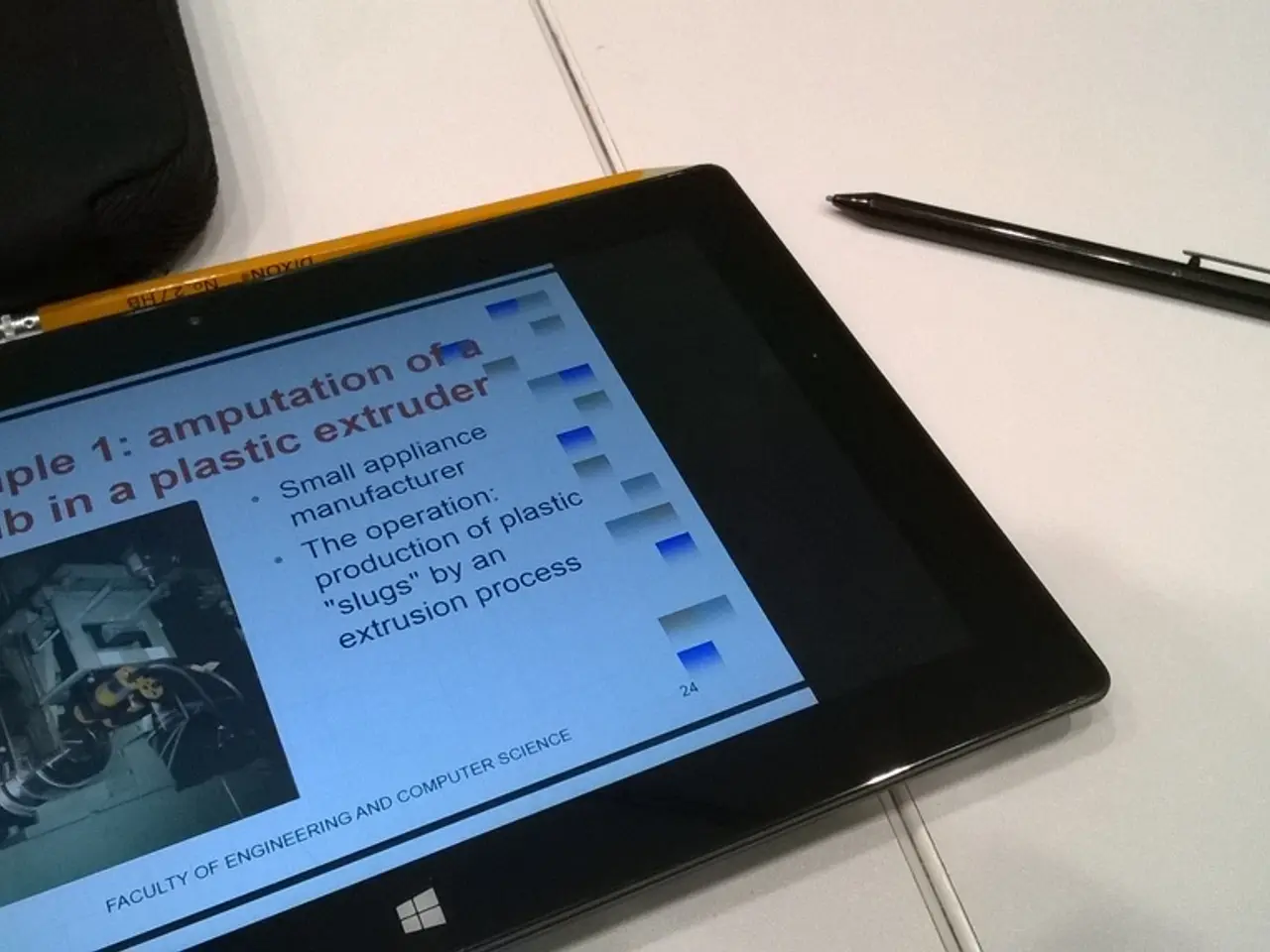Guaranteeing the Extended Application of Executive Function Abilities in Academic and Real-life Settings
In the realm of neurodivergent learning, promoting generalization of executive functioning skills is crucial for ensuring that these skills are not confined to specific settings or situations. Generalization, the ability to complete tasks, perform activities, or display behaviours across different settings, people, and times, is a key factor in the successful application of learned skills in everyday life.
The process of promoting generalization involves a strategic blend of adaptive, supportive technology and behavioural cues, coupled with evidence-based coaching and frameworks. By combining these elements, we empower learners and their support networks to facilitate lasting skill transfer across various environments.
One effective strategy is the use of adaptive, co-regulatory supports. These systems, which offer neuroinclusive, non-intrusive nudges such as reminders to refocus or take breaks, help learners maintain attention and motivation without feeling controlled. These soft cognitive companionships respond to attention drift or fatigue by offering supportive, customizable prompts, reinforcing engagement in real time and building self-awareness around cognitive states.
Employing practical frameworks with visual and task-based supports is another key approach. Interventions adapted from occupational therapy (OT) and life coaching, like task chaining and visual supports, help learners break down complex tasks and build executive skills progressively. These methods are especially effective for teens and young adults, allowing skill development that transfers across contexts through concrete, stepwise planning and visual cues.
Setting goals and action plans using coaching models is another priority. Expert coaching for executive function emphasizes setting clear goals and creating actionable weekly plans aligned with each learner’s unique cognitive profile. Understanding how one's brain works empowers learners to apply strategies consistently in different environments.
Programs like The Zones of Regulation promote generalization by training caregivers and educators to consistently guide learners in recognising, naming, and managing emotional states using a concrete, body-based model. This approach stresses co-regulation, respects neurodiversity, and integrates learning across home, school, and community settings. Using real-life scenarios and monitoring progress in multiple environments helps networks of support tailor interventions and reinforce self-regulation skills.
Role-playing games offer engaging, social-emotional practice opportunities that support growth in executive functions such as planning, flexibility, and emotional control. These immersive experiences allow neurodivergent learners to rehearse skills in safe, varied social contexts that mirror real-world demands, promoting transferability across settings.
In summary, promoting generalization involves contriving opportunities, including difficult ones, to increase the probability of generalization. Recording data is a way to track progress over time in promoting generalization. Common mistakes when promoting generalization include giving up too early, not asking the learner about new scenarios, and not asking for help.
Examples of stimulus generalization include ordering online, where a learner is able to generalize to new websites after being shown enough examples. The fields of psychology, behaviour analysis, and education have identified systematic and intentional ways to support generalization in learners.
The article emphasises the importance of intentional planning, varied instruction, and goals that prioritize generalization for bridging the gap between formal instruction and everyday life. Having a plan for each step before starting to teach is important for promoting generalization. Varying instructions and settings is a method for promoting generalization. Celebrating generalization along the way is important to reinforce the skill. Choosing set-up and materials that learners can use anywhere promotes generalization.
Additional resources and tools for promoting generalization include The Real Life Executive Functioning Workbook, How to Embedding EF skills into Classroom Routines, Executive Functioning IEP Goal Resource Hub, and Executive Functioning Coaching programs. By adopting these strategies and resources, we can help neurodivergent learners thrive in a variety of settings and situations.
[1] Source: https://www.ncbi.nlm.nih.gov/pmc/articles/PMC7142491/ [2] Source: https://www.ncbi.nlm.nih.gov/pmc/articles/PMC6496636/ [3] Source: https://www.ncbi.nlm.nih.gov/pmc/articles/PMC5986274/ [4] Source: https://www.ncbi.nlm.nih.gov/pmc/articles/PMC4956166/ [5] Source: https://www.ncbi.nlm.nih.gov/pmc/articles/PMC5846489/
- To foster personal growth and learning, strategic methods that combine adaptive technology, behavioral cues, coaching, and frameworks can be employed to facilitate lasting skill transfer across various education-and-self-development settings, ensuring life skills are not confined to specific contexts.
- Employing practical frameworks with visual and task-based supports, drawn from occupational therapy (OT) and life coaching, is a key approach to promoting generalization in neurodivergent learners, enabling them to build executive skills progressively and apply these skills successfully in everyday life scenarios, leading to enhanced personal-growth and learning.




